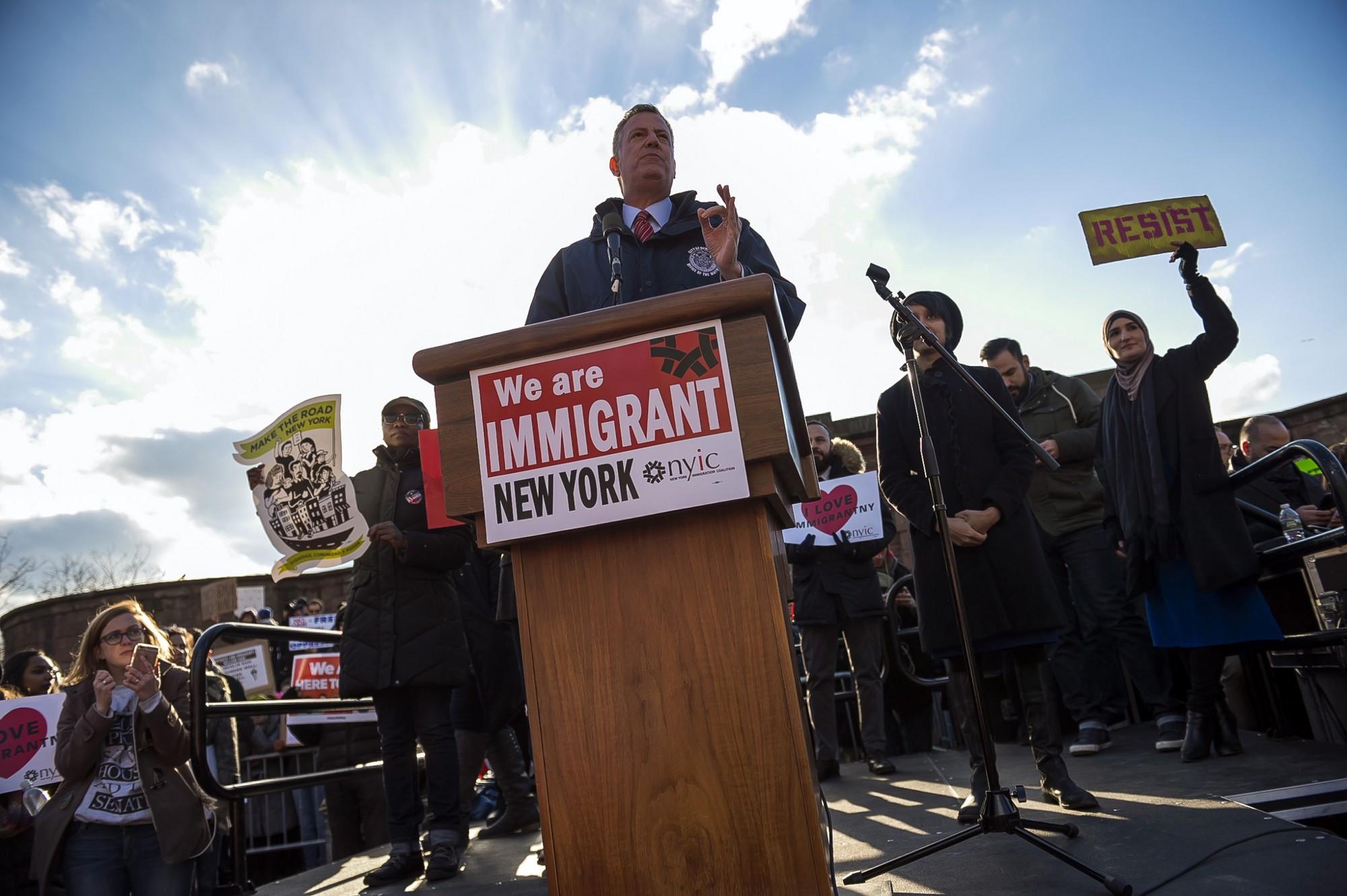NYC Mayor Remains Intent on Restricting Legal Help for Immigrants with Felony Convictions
Legal defense for immigrants has long been central to New York City Mayor Bill de Blasio’s anti-Trump messaging. “We will use all the tools at our disposal to stand up for our people,” he assured immigrant New Yorkers during a high-profile speech at Cooper Union immediately following the 2016 election. His tone was similar during […]

Legal defense for immigrants has long been central to New York City Mayor Bill de Blasio’s anti-Trump messaging. “We will use all the tools at our disposal to stand up for our people,” he assured immigrant New Yorkers during a high-profile speech at Cooper Union immediately following the 2016 election. His tone was similar during his 2018 executive budget announcement, when the mayor doubled funding for immigrant legal services to $31 million. “We need them to have some confidence that there will be support for them,” he said.
But his support doesn’t extend to all immigrants. As de Blasio first made clear last spring, he believes non-citizens convicted within the last five years of any of 170 felonies deemed “violent or serious” should be excluded from certain taxpayer-funded legal services, freeing up aid for the increasing number of vulnerable immigrants without criminal records. The same felonies — which include burglary and drug possession, as well as rape, murder, and arson — also exempt undocumented immigrants and green card holders from New York City’s sanctuary provisions.
“Those are all serious, and in many cases violent, crimes,” the mayor told The Appeal at an unrelated press conference Thursday. “I believe fundamentally that if someone has been convicted of one of those crimes, and we’re going to cooperate with [Immigration and Customs Enforcement] in their deportation, then it is contradictory to say that we are then going to offer legal services. I won’t do it.”
During last year’s budget negotiations, then-City Council Speaker Melissa Mark-Viverito, immigrant rights groups, and public defenders opposed the so-called “criminal carve-out” as it pertained to the New York Immigrant Family Unity Project (NYIFUP). The first-of-its-kind program, established in 2013 and almost entirely funded by the city, offers legal services for all immigrants in deportation proceedings, closing a legal loophole as the U.S. Constitution does not guarantee legal representation in immigration court. The debate over the carve-out was temporarily resolved last year when an anonymous donor provided $250,000 in unrestricted funds.
But this year, there’s no indication that the private donation will be renewed and the de Blasio administration has confirmed that the carve-out applies to all immigrant legal service contracts from FY 2018 forward. That includes help with citizenship, lawful permanent residency, and asylum through the Immigrant Opportunities Initiative; free legal consultations in multiple languages through Action NYC; and removal defense for adults and unaccompanied minors.
Critics say exempting immigrants with criminal records bolsters anti-immigrant stereotypes and undermines due process. “We know who generally has these criminal system interactions: low-income Black and brown people, people who are poor, who have mental illnesses,” says Nyasa Hickey, supervising attorney of the immigration practice at Brooklyn Defender Services. “With this carve-out the city is further exacerbating the perception that these individuals are less valued.”
And while City Hall insists the message has been consistent since last spring, public defenders told The Appeal that they did not know the carve-out would extend beyond NYIFUP to other contracts until December 2017. That month, de Blasio told WNYC’s Brian Lehrer that he considered the restrictions “common sense.”
At a budget hearing Monday, Acting Commissioner Bitta Mostofi of the Mayor’s Office of Immigrant Affairs reiterated his logic. “These are certain individuals who the administration has determined pose a public safety risk for all New Yorkers,” she said. City Hall estimates that fewer than 10 percent of immigrant clients will be impacted by the carve-out.
But critics say the mayor’s restrictions go far beyond any actual public safety concern, particularly since the disqualifying crimes include charges like drug possession. Not only does the carve-out eliminate crucial services for some of their clients, they say, it could scare many more potential clients away from the community organizations set up to help them.
